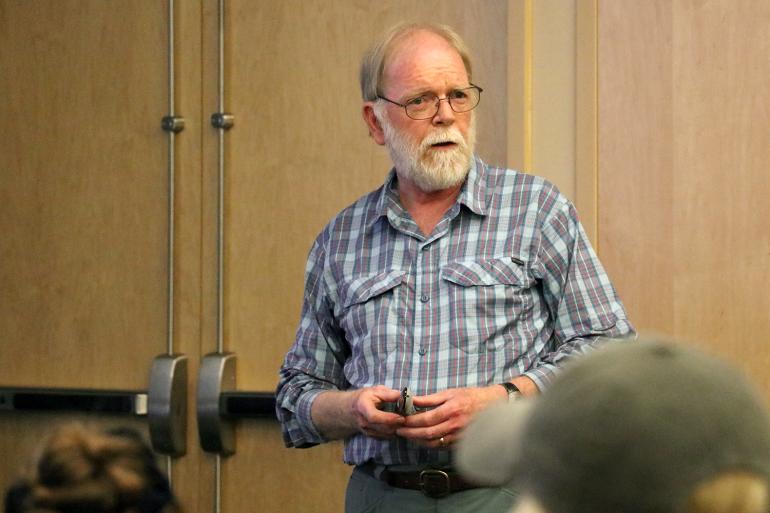
FOR IMMEDIATE RELEASE: September 23, 2019
For More Information:
Glenville State College
Public Relations Department
(304) 462-4115
GLENVILLE, WV - On Wednesday, September 18 Glenville State College hosted a presentation by retired wildlife research biologist, Dr. Michael Nelson.
As a result of the Endangered Species Act of 1973, Nelson began working with the U.S. Department of Interior as a wildlife research biologist, studying white-tailed deer and gray wolves in the Boundary Waters Canoe Area Wilderness in northeastern Minnesota from 1974 through 2010. Nelson’s mentor and colleague, Dr. David Mech, started the research on wolves in 1966 – research that is still continuing today.
When Nelson joined the study, which focused on deer survival and movements in the presence of wolves, it was the first study of its kind to examine wolf predation on radio-collared deer. He supervised the fieldwork with the assistance of volunteers. The research included live-trapping deer in winter and wolves during summer through autumn. Animals were chemically immobilized, weighted, blood-sampled, measured, radio-collared in the field, and released. Autumn trapping of wolves required wilderness canoe travel and camping. After mortality was detected in a radio-tracked animal, hiking, canoeing, skiing, or snowshoeing was required to located and examine the carcass and determine cause of death.
During the presentation Nelson shared that, throughout his time as a researcher, the technology progressed from the development of the first radio-collars for tracking wildlife to current technology utilizing satellite-based tracking with movement data downloaded to portable computers.
The research he conducted emphasized deer social relationships, movements, survival, causes of mortality, and aerial observations of deer and wolf interactions.
Dr. Michael Nelson is the husband of GSC's interim president, Dr. Kathleen Nelson.
The presentation was sponsored by GSC’s chapter of Chi Beta Phi.

